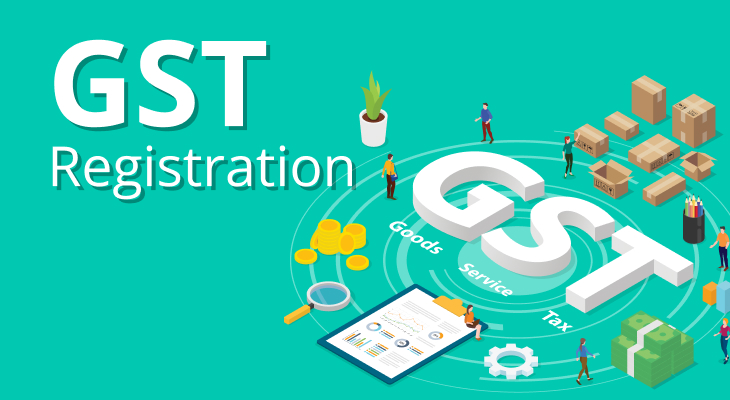Crucial Guide to Singapore GST Registration for New Businesses
Crucial Guide to Singapore GST Registration for New Businesses
Blog Article
Optimizing Tax Obligation Effectiveness: Specialist Tips on Browsing the GST Enrollment Labyrinth for Small Companies
Navigating the intricate landscape of Goods and Services Tax (GST) enrollment can be a labyrinthine task for tiny businesses intending to maximize their tax obligation performance. Recognizing the qualification standards, careful documentation demands, strategic timing considerations, and skilled enrollment procedure pointers can dramatically impact a company's monetary standing. Compliance with GST regulations is vital, and adhering to ideal methods can enhance operations and protect against prospective risks. In this conversation, we will check out skilled understandings and actionable suggestions that can empower small companies to navigate the GST registration labyrinth efficiently and optimize their tax obligation effectiveness.
Eligibility Standards
Qualification needs for Small Organization GST Registration include certain standards that businesses should satisfy to abide with tax laws. To qualify for GST registration, a company has to have an annual turnover exceeding the limit set by the tax obligation authorities, which differs by country.

Paperwork Demands
The needed documentation normally includes proof of organization registration or unification, address and identification proofs of the company proprietor, pictures, bank account details, and evidence of the principal area of business. In addition, organizations need to give information of their service activities, including the items or services supplied.
In addition to the obligatory documents, companies might additionally be required to send extra info based upon their particular situations. This might include papers connected to collaborations, the consent of signatories, or any other relevant arrangements. Maintaining all required paperwork arranged and readily obtainable can streamline the registration procedure and assistance businesses follow the needs successfully - Singapore GST Registration. Failing to give the called for paperwork might cause delays or also denial of the GST enrollment application. Meticulous interest to detail and adherence to the paperwork guidelines are important for an effective GST registration process for little businesses.
Timing Factors To Consider
Thinking about the essential documents needs have been thoroughly dealt with, the following important facet for small services getting started on the GST registration procedure is the calculated monitoring of timing considerations. Timing plays a pivotal duty in GST enrollment, impacting not just compliance but likewise economic facets of business. Local business require to very carefully prepare the timing of their GST enrollment to make the most of benefits and decrease prospective risks.

Furthermore, companies must straighten the timing of their GST registration with their operational readiness. Appropriate preparation, such as upgrading audit systems and training team, is important to flawlessly integrate GST requirements into day-to-day procedures. By purposefully taking care of timing considerations, little organizations can navigate the GST enrollment process successfully and optimize their tax obligation efficiency.
Registration Refine Tips
Efficiently navigating the GST registration process requires little businesses to carry out positive and tactical registration procedure pointers. This consists of business enrollment files, evidence of address, financial institution statements, and recognition evidence of the service proprietors.
Additionally, recognizing the thresholds and requirements for GST enrollment based on the certain state or region where the organization runs is crucial. Some states have various turnover thresholds that set off necessary enrollment, so being notified about these limits can help services prepare in advance.
One more important pointer is to think about seeking specialist help from accountants or tax experts that specialize in GST enrollment. Their competence can improve the procedure, decrease errors, and make sure compliance with all policies.
Conformity Ideal Practices
Browsing the GST enrollment procedure smoothly demands not just critical enrollment process pointers however likewise attentive adherence to conformity ideal techniques to ensure continuous regulatory positioning. Small companies need to Continue prioritize compliance to prevent charges and keep a great standing with tax obligation authorities. One vital best practice is to keep comprehensive and precise records of all deals. This includes billings, receipts, and various other monetary papers that might be required for tax audits or conformity checks. Additionally, remaining informed concerning any type of modifications or updates to GST laws is vital. Local business proprietors should consistently review government guidelines and seek specialist advice if required to guarantee they are satisfying all needs. It is also recommended to submit GST returns in a timely manner to stay clear of late costs and penalties. By incorporating these compliance finest techniques right into their operations, small companies can navigate the intricacies of GST registration with self-confidence and performance.
Final Thought
In conclusion, small companies can browse the GST registration maze by ensuring they fulfill qualification requirements, collect needed documents, consider timing implications, follow registration process suggestions, and comply with conformity best methods. By taking full advantage of tax obligation performance with appropriate GST enrollment, services can improve their economic management and procedures.
Browsing the complex landscape of Item and Provider Tax Obligation (GST) registration can be a labyrinthine job for little organizations aiming to optimize their tax effectiveness.Eligibility demands for Small Organization GST Enrollment include certain criteria that companies have to satisfy to conform with tax obligation regulations. The needed documents generally consists of proof of business registration or address, consolidation and identification proofs of the business owner, photographs, bank account details, and proof of the major area of company. In addition, organizations need to provide information of their organization tasks, including the services or items supplied.Efficiently Continue browsing the GST registration procedure requires tiny services to apply critical and proactive registration process pointers.
Report this page